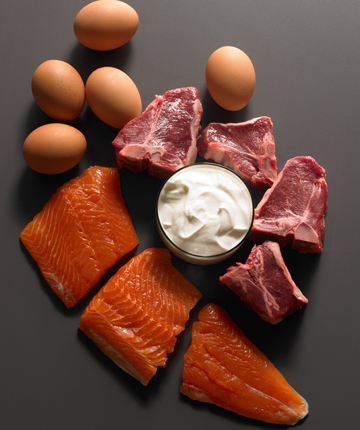By CHRISTOPHER HASSETT
My sex drive of late has pretty much vanished. I love my girlfriend and love being intimate with her. I’m just not feeling any desire for sex. Is there anything I can be doing with my diet that might change that?
— Carolin, West Village
Diet truly is the miracle remedy for nearly all that ails us. So it should come as no surprise to hear that even the smallest dietary tweaks can bring on noticeable changes in libido. Simply eating well, eating fresher, eating less, can enliven us sexually, if only in that we’re feeling better about ourselves: sexier, shaplier, sharper.
But diet has significant physiological affects as well, and it is in this area that some compelling research has emerged in recent years. One study I found particularly interesting came out of research done by Marrena Lindberg, author of “The Orgasmic Diet.” Though she’s not a doctor, Lindberg’s findings are gaining support and some notable credibility in the medical community, to the point where some of the more forward-thinking nutritional schools are taking her work seriously.
My opinion of her diet is that it’s valid if one wants to specifically address libido, which is your concern here. However, when considering good overall health I think the diet falls short, since it recommends that at least 30 percent of calories in every meal come from protein and 30 percent from fat, with these calories primarily being derived from meat or dairy sources. These pecentages, for my liking, are far too high, and the source of all that fat and protein is, in my opinion, not only misguided from an ethical standpoint but entirely risky when considering long-term health.
Lindberg outright cautions against low-fat vegetarian or vegan ways of eating because both, in her opinion, are “libido killers.” Now, while it would be my pleasure to argue against this claim, I want instead to stay focused on the true intention of this column, which is to spotlight at least one non-pharmaceutical way to awaken desire. If you are vegetarian or vegan, I still think the main thrust of her diet might help in that goal.
That main thrust, then, is a supplemental one. In other words, the critical players are supplements — omega 3 fish oil, magnesium, zinc and calcium. These supplements basically do all the work, with the actual food merely weighing in as support. With appropriate doses of each, especially the omega 3, improved libido can occur in as little as one week for men and three to six weeks for women.
It’s generally around this sixth week, Lindberg says, “[that] women tell me, ‘Oh, now I understand what men feel like. I just have this desire constantly to have sex.’ It’s just sort of an animal thing.” She says it’s common for women to feel slightly disoriented as their libidos come alive, because suddenly, quite often in a single day, so much begins to happen in their bodies that hadn’t notably happened in the years or even decades prior. But take pleasure in the confusion, explore its every shadow and nook, because women on her diet say they’re reaching orgasm more quickly, with greater intensity and frequency, than they ever had before. They’re also saying, and Lindberg includes herself in this category, that when combined with a daily regiment of Kegel excercises they’re becoming spontaneously orgasmic as well. But Lindberg notes that for increased libido alone, perhaps minus on-the-spot orgasms, the Kegels aren’t necessary.
In order to bring all of this into being, the daily dosage for fish oil needs to be quite high: 1,700 mg E.P.A. and 1,300 mg D.H.A., while calcium, magnesium and zinc, which you can get in a single capsule, are normal daily allowances. It should be noted that some medical professionals warn against “megadosing” on fish oil because of its effectiveness in thinning the blood, so if you have concerns in this area it would be wise to consult with a doctor or nutritionist before venturing in.
With that said, research does show that a diet high in omega 3 fatty acids raises dopamine levels in the brain, regulates serotonin, increases blood circulation, and helps elevate mood, all of which contribute not only to improved libido but to overall mental health. The addition of magnesium and zinc is a complementary one, since the two together help remove barriers in the blood that would otherwise limit the beneficial effects of fish oil. Other barriers to these benefits are, unfortunately, the usual suspects — caffeine, nicotine and alcohol. Which means most of us will find it impossible to get through even the first day without proving unfaithful to the cause.
Remember, this is just one approach to tweaking your diet for the sole purpose of improving libido, and it’s effects (or lack of) can only be subjective. What works for many may not work for you. If it doesn’t, then you should know that there are other changes you can make in your diet, both specific and general, that might similarly awaken long-dormant desires, and they would have nothing to do with the use of fish oil. It could be your most pleasurable pursuit: research, experiment and have fun.
Christopher Hassett is a columnist and natural healer living in New York City. Learn more about natural approaches to health at ThreePerfections.com. Do you have a question or comment for Christopher? You can e-mail him at conversations@threeperfections.com





































